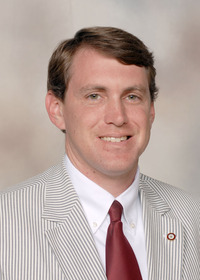A Quick Guide to the Open Meetings Act
It being essential to the fundamental philosophy of the American constitutional form of representative government and to the maintenance of a democratic society that public business be performed in an open and public manner, and that citizens be advised of and be aware of the performance of public officials and the deliberations and decisions that go into the making of public policy, it is hereby declared to be the policy of the State of Mississippi that the formation and determination of public policy is public business and shall be conducted at open meetings except as otherwise provided herein [Laws, 1976, ch. 481].
What Is Considered a Meeting?
When a quorum of the governing body is present and officials discuss a matter under the authority of the public body, it is classified as a meeting. Meetings can include board meetings, work sessions, board retreats, committee meetings, or chance gatherings where a quorum is present and business is discussed. Social gatherings are not subject to the Open Meetings Act if official business is not discussed.
What Notice Is Required for a Public Meeting?
No additional notice is required when the body holds a regular meeting at such times and places and by such procedures as are specifically prescribed by statute. Any meeting outside of a regular meeting must be advertised within 1 hour after such meeting is called in a prominent place available for examination and inspection by the public in the building in which the public body normally meets. A copy of the notice must be made a part of the minutes or other permanent official records of the public body. Additional requirements are in place for municipalities with a population greater than 25,000 and counties with a population greater than 50,000.
Minutes for Public Meetings
Minutes are required to be recorded for any public meeting, including action taken during executive session. Minutes must be recorded within a reasonable time not to exceed thirty (30) days after recess or adjournment and shall be open to public inspection during regular business hours. Minutes must contain: Members present and absent; Date, time, and place of meeting; Accurate recording of any final actions; Record, by individual member, of all votes taken; Any other information requested by the public body.
Can Board Members Attend Meetings via Telephone or Video Conferencing Services?
Section 25-41-5 allows a public body to conduct any meeting through teleconference or video means. The equipment used must be located at the place where the public body normally meets or at a public location specified in any notice of a special meeting, and all members of the public body and members of the public who attend the meeting must be able to hear the deliberations of the public body. Votes taken during any meeting conducted through teleconference or video means must be taken in a manner that is clearly audible or visible to all members of the public body and to members of the public present at the public location.
Executive Session Procedures
Any public body seeking to enter an executive session must use the following steps:
- A member makes a motion for the meeting to be closed to determine whether the body should declare an executive session.
- This motion does not require a second.
- A vote must be taken in the open meeting.
- A majority vote is required to close the meeting.
- The board then should discuss the reason for entering executive session.
- 25-41-7 places limits on the reasons a body can enter executive session. Personnel matters for a specific person are a common reason boards enter executive session. It should be noted that the Mississippi Supreme Court has ruled that personnel matters are restricted to employees hired by the board and not the officials themselves.
- An affirmative vote of three-fifths of all members present is required to declare executive session.
- The body then must state in open session the reason for going into executive session, and the total vote must be recorded in the minutes of the meeting. The reason for entering executive session must be specific.
- While in executive session, minutes must be recorded of any action taken.
- While the Ethics Commission generally recommends that public bodies announce final actions taken in executive session to the members of the public in attendance at the board’s meeting, the Open Meetings Act does not contain any such requirement. However, the board must record all final actions taken by the board in the minutes of the meeting.
All public bodies are encouraged to be fully aware of the complete Mississippi Open Meetings Act. The Mississippi Ethics Commission hears complaints regarding open meeting violations. The Ethics Commission may impose a $500 fine for the first offense and $1,000 for subsequent offenses.
The Center for Government and Community Development staff design and deliver educational programs, training activities, information, and technical assistance in response to the high-priority economic and community development needs of Mississippi communities and their citizens. Participants in GCD programs include local government leaders, community-based organizations, state and local agencies, and business enterprises. For additional local government resources, please visit gcd.msstate.edu or call (662) 325-3141.
Publication 3845 (POD-06-23)
By Jason Camp, PhD, Extension Specialist, Extension Center for Government and Community Development.
The Mississippi State University Extension Service is working to ensure all web content is accessible to all users. If you need assistance accessing any of our content, please email the webteam or call 662-325-2262.




